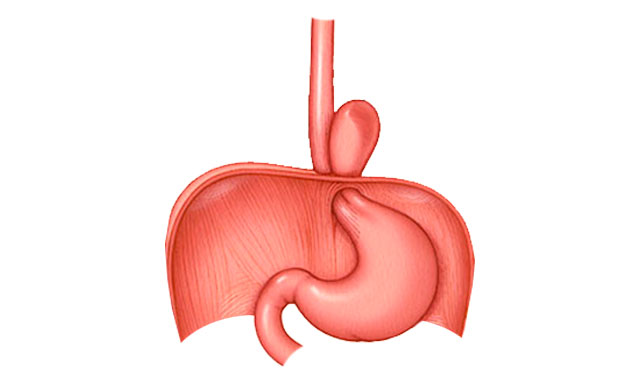It has been advocated that a Hiatal Hernia found at the time of bariatric surgery SHOULD BE REPLACED as failure to do so may worsen GERD symptoms over time.
The repair at the time of a Sleeve Gastrectomy and Roux-en-Y gastric bypass (RYGB) is safe, well-tolerated, and with minimal additional cost.
A hiatal hernia found at the time of sleeve gastrectomy should be repaired during the index operation, otherwise the upper portion of the stomach that has been slide through the thorax will act as a stretch pouch ending in weigh loss failure.
Crural repair with sleeve gastrectomy provides control of gastroesophageal reflux disease (GERD) and weight loss.
In some cases where patients suffer from severe acid reflux might get better control for GERD symptoms choosing a Bypass Roux-en-Y rather than having a sleeve gastrectomy, GERD symptoms are caused by multiple reasons such overweight, hiatal hernia, alcohol, medication, etc.
In order to offer you the tool that suits you best, it is very IMPORTANT for US to know about your medical history.
A detailed health questionnaire with as much information as possible helps us to get to know our patient beforehand.
©2023 Dr. Luis Pasten | Overweight Reduction Center | All Rights Reserved.

